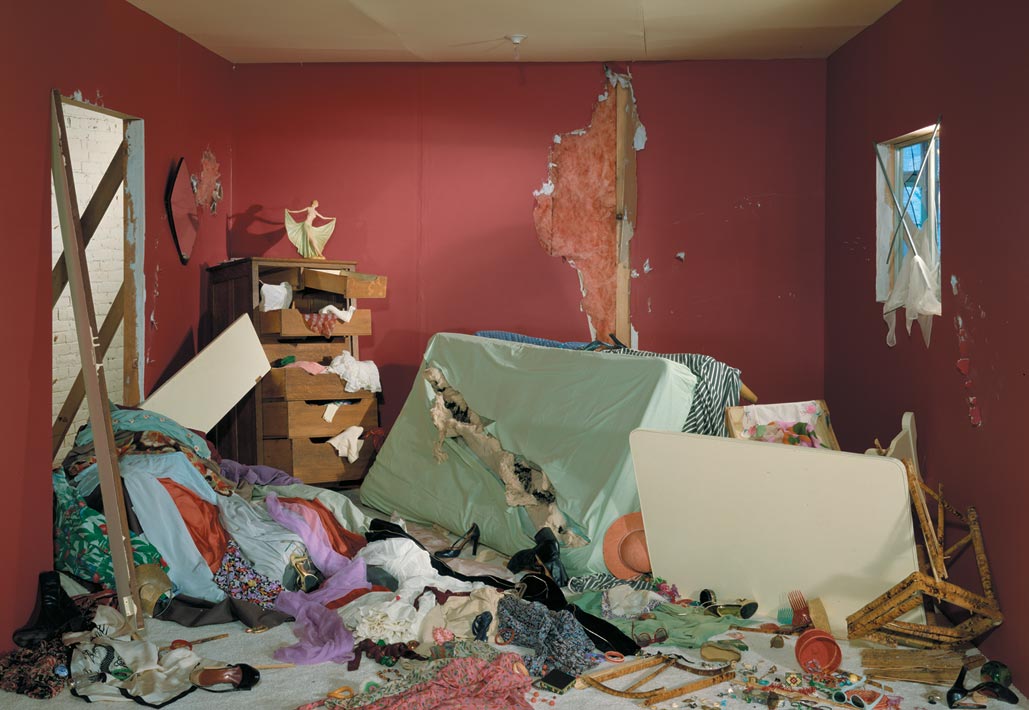“I’ve always felt that good art has to reflect somehow on its own process of coming to be” – Jeff Wall

Jeff Wall is a Canadian photographer, conceptual artist and art historian. Wall has received high acclaim for tableau photography, seen as as a pioneer of the medium as a serious form of art. Born in Vancouver, Canada 1946, Wall develop a keen interest for photography from a young age. From 1967-1970 Wall studied Art at the University of British Columbia. He then spent numerous years as Assistant Professor at both Novia Scotia College of Art and Design, and Simon Fraiser University. Wall first came to prominence as a photographer in 1977 with his Solo Exbition entitled ‘Installation of Faking Death’, one natable piece of the series being a self portrait of him posed as if he was dead, made into a triptych. Sicne then he has had made prominent exhitibitions world-wide, icluding.

Wall’s work is very experimental and unusual, for example his technique in enlarging photographs to extreme scales in a process known as cibachrome development. Such practices have made him very influential in the world of contemporary photography and conceptual/post-conceptual art. Wall is celebrated greatly in his Native Vancouver, and throughout the rest of Canada and North America, winning accolades such as the Hasselblad Award (2002), and Audian Prize for life achievement (2008), and having many group and solo exhibitions across North America and Europe since the late 1970s.
I would consider Jeff Wall to be an experimental photographer. Rather than being simplify a tableau photographer, the range of his work is far more complicated and diverse than this.In the past he has experimented with painting, sculptures and written text as well as his photography Wall considers the act of staging photographs to have a very open-ended meaning. He stated that he like to work in the ‘grey area’ of tableau and documentary photography. He stages elements of his photograph as a means of enhancing drama and incorporating symbolism but does not control all aspects of his photograph. He states himself that, “I control some thing and other things I don’t even try to control”. This type of style, verging on the border of different genres, is an extremely subversive way of interpreting art because the individual is not conforming to the regulations of a particular style, but instead working outside of these boundaries, and gaining influence from different interpretations.

Wall takes influence from surrealist artist such as Salvador Dali, and the Pop-Art Movement of the 1960s
I would argue that Jeff Wall’s work in tableau photography is a form of protest against traditional views of photography. This is because his work is not purely tableau and instead incorporates influence from documentary and photojournalism Wall does not believe that photography can be truly spontaneous and therefore does not attempt to create images that would be termed ‘spontaneous’. He explores the relationship between naturalness and unnaturalness, a theory that derives from the ancient Chinese ‘Ying-Yang’ theory, which explores how apparently opposite or contrary forces are actually complementary to one another. Wall’s worked is defined by this theory as he constantly explores contradictory ideas to produce interesting and thought provoking work.

This photograph was planned beforehand, but appears to be spontaneous. It was not staged to be overly dramatic, bit instead to achieve a good composition
Here is a website to Jeff talking about tableau photography
http://www.sfmoma.org/explore/multimedia/videos/242
Acedemic
- 1970: Graduated from University of British Columbia, Canada
- 1970-73: Attended Courtland Institute, London
- 1974-75: Assistant Professor at Novia Scotia College of Art and Design
- 1976-1987: Assistant Professor at Simon Fraiser University
Solo Exhibitions
- 1977: Installation of Faking Death
- 1978: The Destroyed Room: examining relationship between art and destruction
- 1979: Picture for Woman
- 1984: Jeff Wall: Transparencies, Institute of Contemporary Arts, London
- 1990: Jeff Wall 1990, Vancouver Art Gallery
- 1992: Palais des Beaux-Arts
- 1995: Museum of Contemporary Art, Chicago
- 1996: Museum of Contemporary Art, Helsinki
- 1998: Here and Now II: Jeff Wall, Henry Moore Institute, Leeds
- 2001: Marian Goodman Gallery, New York
- 2003: UCLA Hammer Museum
- 2005: Schaulager, Basel
